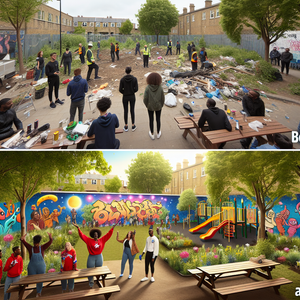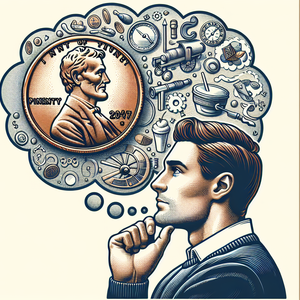The Future of Smart Cities: Accessibility Consultants Shaping Urban Innovation

Smart cities are defined by their use of technology to enhance residents' quality of life, optimize resource use, and improve urban management. Innovations such as smart traffic systems, energy-efficient buildings, and interconnected public services are intended to create sustainable and responsive urban environments. However, without a deliberate focus on accessibility, these advancements may inadvertently create barriers for individuals with disabilities, the elderly, and other marginalized groups. Accessibility consultants are essential in bridging this gap, ensuring that smart city initiatives are designed to meet the needs of all citizens.
Innovative Technologies for Accessibility
Accessibility consultants employ various technological solutions to enhance urban environments. For instance, data analytics can help identify gaps in accessibility, allowing city planners to make informed, data-driven decisions. Smart sensors can aid navigation for visually impaired individuals by providing real-time information through audio cues or haptic feedback. Mobile applications are another promising avenue for promoting accessibility. These apps provide users with real-time data on accessible routes, public transport options, and facilities. By guiding users through their urban environment, these technological innovations empower all individuals to navigate the city with confidence.
Design Strategies that Prioritize Inclusivity
The influence of accessibility consultants extends beyond technology to urban design. By applying universal design principles, they create spaces that are accessible to everyone, regardless of their physical abilities. Multi-modal transportation systems exemplify this approach, designed to accommodate various mobility needs. Features such as low-floor buses, tactile paving, and audible announcements ensure that public transport is usable for all. Public spaces, including parks and plazas, can also be designed with inclusivity in mind. Elements such as sensory gardens, quiet zones, and universally designed seating cater to diverse needs. Accessibility consultants collaborate closely with architects and urban planners to integrate these considerations from the outset of projects.
Case Studies of Successful Integration
Cities around the world are increasingly recognizing the significance of accessibility in their smart city initiatives. Barcelona serves as a prime example, having implemented a comprehensive accessibility strategy as part of its smart city plan. The city has developed a network of accessible pedestrian pathways, smart lighting that adjusts to users' needs, and real-time information systems that cater to various accessibility requirements. Singapore is another notable case where government investment in assistive technologies, such as robotic mobility aids in public transport, has been guided by accessibility consultants. Their expertise has been instrumental in ensuring that these technologies meet the needs of all citizens, fostering a more inclusive urban environment.
As the concept of smart cities continues to evolve, the role of accessibility consultants will only become more critical. Their expertise enhances the functionality of urban environments while ensuring that innovation does not compromise inclusivity. By prioritizing accessibility in urban planning, cities can create spaces where all individuals have the opportunity to thrive. The future of smart cities is not merely about technology; it is about crafting a shared urban experience that embraces diversity and fosters community.
Urban Accessibility Planner
Local government agencies, urban planning firms, non-profits focused on urban development
Core Responsibilities
Develop and implement urban planning strategies that prioritize accessibility for individuals with disabilities and the elderly.
Conduct site assessments to identify and recommend improvements in public spaces and transportation systems.
Collaborate with community stakeholders to gather input on accessibility needs and concerns.
Required Skills
Strong knowledge of urban planning principles and accessibility regulations (e.g., ADA, ISO 21542).
Proficiency in GIS software and data analysis tools to map accessibility issues.
Excellent communication and project management skills.
Assistive Technology Specialist
Healthcare organizations, rehabilitation centers, technology firms specializing in assistive devices
Core Responsibilities
Evaluate and recommend assistive technologies to enhance mobility and access for individuals with disabilities in urban environments.
Conduct training sessions for users on how to effectively utilize assistive devices and applications.
Collaborate with city planners and developers to integrate assistive technologies into public infrastructure.
Required Skills
In-depth knowledge of various assistive technologies, including mobility aids and smart devices.
Experience in user training and support for individuals with different accessibility needs.
Strong analytical skills to assess technology effectiveness and user feedback.
Inclusive Design Consultant
Architectural firms, construction companies, urban development agencies
Core Responsibilities
Advise architects and designers on incorporating universal design principles in new construction and renovation projects.
Conduct accessibility audits of existing structures and provide actionable recommendations for improvement.
Facilitate workshops and training for design teams on best practices for inclusive design.
Required Skills
Expertise in universal design principles, building codes, and accessibility standards.
Strong portfolio demonstrating experience in designing inclusive spaces.
Ability to communicate complex design concepts to diverse audiences.
Transportation Accessibility Coordinator
Public transportation agencies, city governments, non-profits focused on mobility issues
Core Responsibilities
Analyze public transportation systems to identify barriers and propose solutions to enhance accessibility.
Develop and implement policies and programs to improve transit services for individuals with mobility challenges.
Engage with community members to understand their transportation needs and preferences.
Required Skills
Knowledge of public transportation systems and relevant accessibility regulations.
Strong analytical skills for assessing transportation data and user experiences.
Excellent interpersonal skills for community engagement and collaboration with transit authorities.
Smart City Data Analyst
Smart city technology firms, municipal data departments, research institutions
Core Responsibilities
Utilize data analytics to assess urban accessibility and recommend improvements to smart city technologies.
Monitor and evaluate the effectiveness of accessibility initiatives through data collection and analysis.
Collaborate with city planners and technology developers to ensure data-driven decision-making.
Required Skills
Proficiency in data analysis tools such as Python, R, or Tableau.
Strong understanding of urban analytics and accessibility metrics.
Ability to present data insights clearly to stakeholders and community members.


